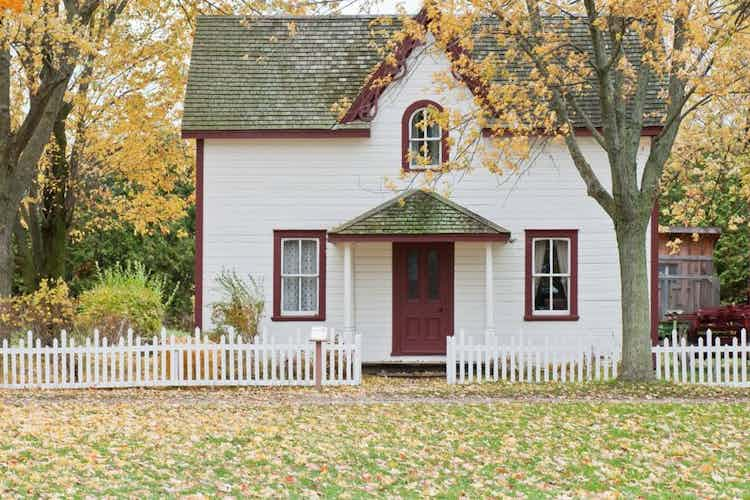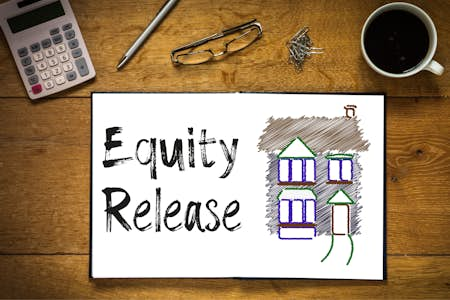The subject of freehold and leasehold arrangements has been in the news over the last few years. There have been concerns regarding "unreasonable" increases in ground rents, although the UK government is now addressing these problems. However, behind the headlines, many people are still confused and unaware of their rights as a leaseholder.
What is a leasehold arrangement?
Before we go into detail regarding your rights with a leasehold arrangement, it is worth reminding ourselves exactly what this arrangement includes. Traditionally leaseholds were associated with:
- Flats
- Converted houses
- Commercial/retail premises.
More recently, we have seen the separation of new home ownership into freehold and leasehold arrangements. As we touched on above, ground rent increases written into leasehold arrangements have become a valuable source of income for developers.
A leasehold agreement entitles you to:
- A defined period of occupation (usually between 99 and 125 years)
- Ownership of everything within the four walls of the property
- Ownership of non-communal areas such as a garden
The collective term for elements of a property owned by a leaseholder is “demised premises.”
As a freeholder (landlord), the following will typically apply:
- Ownership of the structure and common parts of the building
- Ownership of the land on which the building stands
- Responsibility for maintenance and repair of the building
- Right to recover repair/maintenance costs from leaseholders
So, now we have confirmed the different elements of leaseholder/freeholder arrangements, we will now take a look at your rights as a leaseholder.
Statutory rights as a leaseholder
The UK government is currently looking at the relationship between freeholders and leaseholders, with many expecting significant future changes. However, at this moment in time, your rights as a leaseholder include:-
Lease charges
- Consultation on major works
Your landlord is obliged to consult with all building leaseholders where your share of any significant works' cost will exceed £250. Failure to consult with leaseholders may limit a landlord's ability to recover more than £250 per leaseholder.
- Restrictions on long-term agreements
There may be occasions where your landlord is considering entering a long-term agreement, perhaps involving a formal service for the freehold building. If the annual cost to individual leaseholders is more than £100, your landlord is obliged to consult you before signing the arrangement.
- Service charge dispute
On occasion, we have seen landlords looking to impose “unreasonable” service charges upon leaseholders. If you feel a service charge is "unreasonable", you can apply to a tribunal to consider and rule on the charge's validity. It is probably sensible to take professional advice if going down this route.
- Administration charge dispute
The ability to impose several charges on leaseholders has become a lucrative income stream for many landlords (freeholders). Thankfully, there are ways and means of challenging unfair charges via the tribunal route. If you believe a charge is unreasonable, it is vital to challenge this as soon as possible.
Management of property
- Right to manage
Leaseholders in an individual building can use “right to manage” laws to take over the management of the building. The building's future management would be carried out via a Right to Manage Company, set up and operated by the leaseholders. To qualify for this, at least half of the flats in the building must have qualifying tenants.
- Appointing new building management
Where there is an issue with the management of the building, leaseholders can insist on the appointment of new management. If unable to reach an agreement with your landlord, you can use the tribunal service. However, there must be specific issues with the current service provider to impose any changes.
Leasehold/freehold terms and ownership
- Lease extensions
This is an area of uncertainty and confusion for many leaseholders. In simple terms, if you have owned a lease for at least two years, and the term remaining at purchase was more than 21 years, you should qualify for a lease extension. Formal negotiations are much quicker and less expensive, but you can use a tribunal to set a "fair price" where no agreement is reached. Your landlord does not have absolute control!
- Buying the freehold
There are circumstances whereby individual or collective leaseholders can formally and informally apply to acquire a landlord's freehold. This can become complicated, and it is sensible to take professional advice to clarify your situation and your rights.
- First refusal on freehold
While there are some exceptions to the rule, such as housing associations and local authorities, you will typically have first refusal on your freehold if the landlord decides to sell. If unable to agree on a price, you can again use the tribunal service. Be aware; this process can be lengthy!
- Right to vary your lease
Nothing is stopping you from approaching your landlord at any time to request minor or even significant variations on your existing lease. Where there are issues such as lack of provision for repair/maintenance, a tribunal can force the variation on your landlord. Otherwise, your landlord is not obliged to agree to any variation request.
Protecting your property
As we have touched on above, you have various rights and options regarding the extension/variation of an existing lease. In some circumstances, you may also qualify for the opportunity to purchase the freehold outright from your landlord. While most leases tend to be between 99 years and 125 years, they obviously decrease year on year. So, when is the right time to apply for an extension on your existing lease?
While nothing is set in stone, you will find that properties with a lease of fewer than 80 years remaining may not qualify for traditional mortgage finance. Consequently, if you were to sell your property, the potential pool of buyers would significantly diminish. The "market value" of the property would be impacted because of the relatively short lease.
To protect the market value of your property, as a rule of thumb:
- You should extend a lease with less than 80 years remaining
- You should begin the extension process where there are between 85 and 80 years remaining
- If the remaining duration is between 90 years and 85 years, an extension will make the property more "saleable"
- There would be no urgency to extend a lease with more than 90 years remaining
If you are considering extending your lease, it is vital to take professional advice to achieve the best terms and conditions.
Don’t forget your statutory rights……
Many leaseholders are unaware of their statutory rights regarding lease extensions, excessive charges and substandard management of their building. You should also be aware of any specific conditions written into your leasehold agreement. Once you have signed a leasehold agreement, assuming that the conditions are legal in the eyes of the law, it can be difficult, if not impossible, to make forced changes.
You must be aware of the protections afforded to leaseholders and the obligations placed upon freeholders. If in doubt, take advice.








